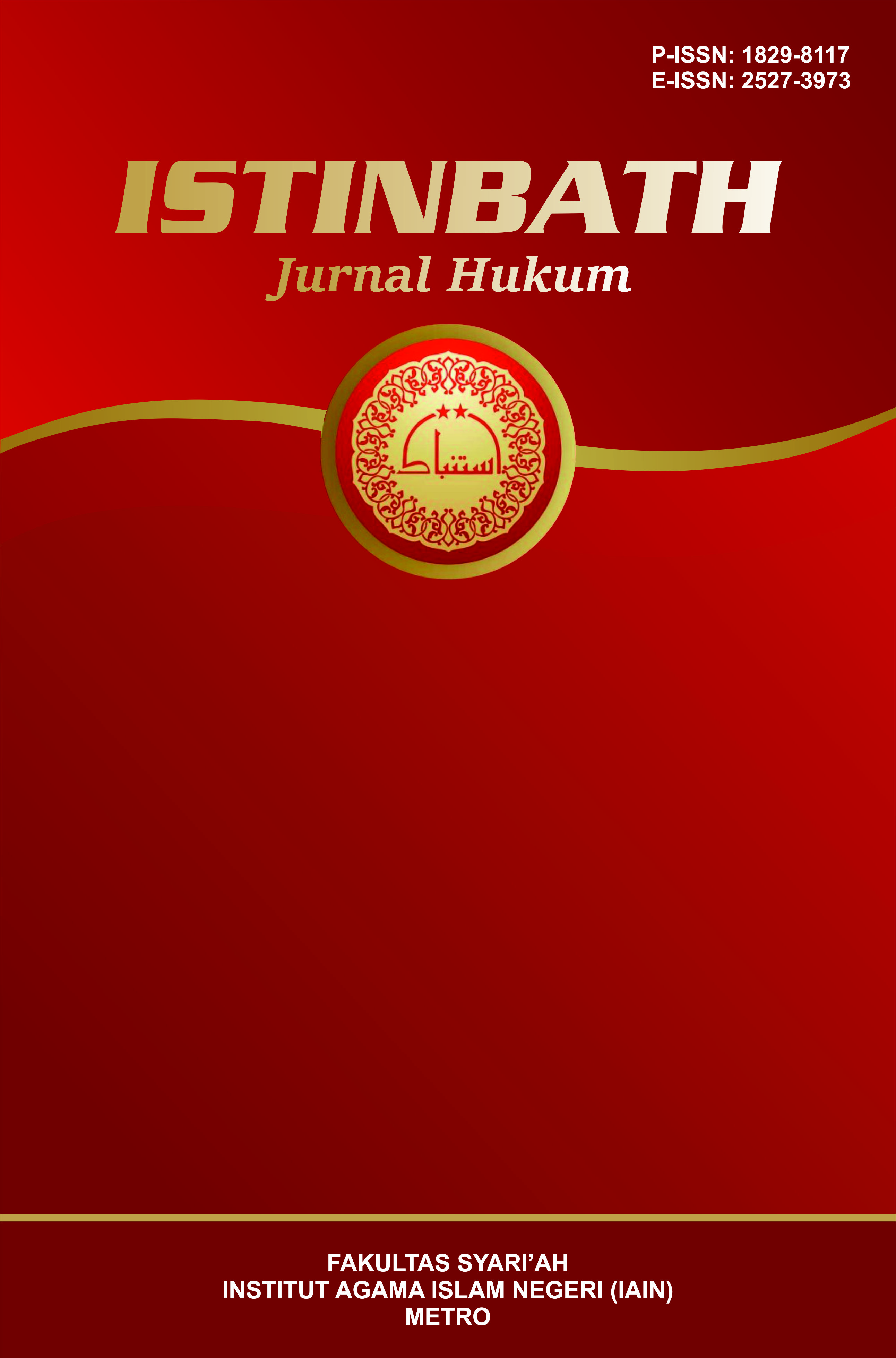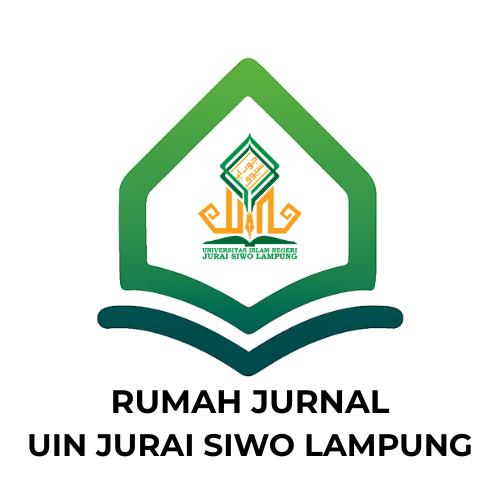Biometric Voting Integrated with Islamic Political Principles: to Enhance Democracy in Bangladesh's E-Voting System
DOI:
https://doi.org/10.32332/istinbath.v21i01.9657Keywords:
Fair-Elections, Transparency, Biometric-voting, Quranic-principles, Bangladesh.Abstract
This paper addresses the vital importance of fair and transparent elections as the foundation of a robust democracy, crucial for representing citizens' voices and fostering trust in the electoral process. In Bangladesh, the pursuit of fair elections faces significant challenges, including transparency issues, accountability concerns, and instances of voter fraud. This analysis presents a novel approach that combines Quranic principles with biometric voting technology to address the challenges faced by the current voting system. Taking inspiration from Islamic values, particularly those that emphasize justice, equality, and accountability, the proposed framework intends to improve the democratic aspect of e-voting in Bangladesh. By incorporating biometric authentication mechanisms, such as fingerprint or iris scanning, this framework seeks to ensure the integrity of the voting process while adhering to Quranic and Prophetic principles of fairness and transparency. This study explores the feasibility and implications of implementing such a system within Bangladesh's electoral landscape through a multidisciplinary approach that bridges Islamic scholarship, technological innovation, and political theory. By leveraging the potential of biometric voting technology guided by Quranic principles, this research contributes to the ongoing discourse on electoral reform and democratization in Bangladesh, offering valuable insights into how technology and ethical considerations can intersect to strengthen democratic governance.
References
(GED), G. E. D., Commission, B. P., Planning, M. of, & Bangladesh, G. of the P. R. of. (2018). Sustainable Development Goals: Bangladesh Progress Report 2018. United Nations Department of Economic and Social Affairs, December, 64.
Abootalebi, A. (2000). The Struggle For Democracy In The Islamic Republic Of Iran. MERIA: Middle East Review of International Affairs, 4(3), 1–12. https://ciaotest.cc.columbia.edu/olj/meria/meria00_aba01.html 1/12
ACCORD. (2023). Bangladesh : COI Compilation. In ACCORD - Austrian Centre for Country of Origin & Asylum Research and Documentation (Issue August). http://accord.redcross.at
Al-Attas, S. M. N. (1993). Islam and Secularism (pp. 133–167). Art Printing Works Sdn. Bhd. https://libraryoflights.files.wordpress.com/2011/06/islam-and-secularism-attas.pdf
Aswar, H. (2021). Secular Perspective on The Islamic Political Discourses in Indonesia: A Critical Analysis. Jurnal Kajian Peradaban Islam, 4(2), 35–41. https://doi.org/10.47076/jkpis.v4i2.64
Borak, M. (2024). Bangladesh ’ s government wins election campaigning on DPI. Www.Biometricupdate.Com. https://www.biometricupdate.com/202401/bangladeshs-government-wins-election-campaigning-on-dpi
Chowdhury, M. J. A. (2015). Elections in “democratic” Bangladesh. In Unstable Constitutionalism: Law and Politics in South Asia (Issue November). https://doi.org/10.1017/CBO9781107706446.007
Commission, B. E. (2004). The Constitution of the People ’s Republic of Bangladesh ( ACT NO. OF 1972 ). Bangladesh Election Commission, ( ACT NO.(Article 118). https://faolex.fao.org/docs/pdf/bgd117108E.pdf
Dana, K., Barreto, M. A., & Oskooii, K. A. R. (2011). Mosques as American institutions: Mosque attendance, religiosity and integration into the political system among American Muslims. Religions, 2(4), 504–524. https://doi.org/10.3390/rel2040504
Dr. Mohammad Nayamat Ullah. (2023). Islamic Education and Islamization of Education in Bangladesh : A Critical Study. The Chittagong University Journal of Arts and Humanities, XXXV(2019), 153–176. https://ejournal.kopertais4.or.id/madura/index.php/alinsyiroh/article/view/6337/3987
EicherPeter, Zahurul Alam, jeremy E. (2010). Elections in Bangladesh 2006-2009: Transforming Failure into Success. In UNDP (Vol. 2, Issue 10). https://doi.org/10.1080/09700167909425746
Enrico D’Ambrogio, S. C. (2023). Bangladesh and the 2024 elections From ’ basket case ’ to rising star. In European Parliamentary Research Service: Vol. PE 757.586 (Issue December 2023). https://doi.org/PE 757.586
G. Shabbir Cheema, V. P. (2010). Building trust in government: Innovations in governance reform in Asia. In V. P. G. Shabbir Cheema (Ed.), United Nations University Press (Vol. 139, Issue c). http://www.unu.edu
Hanafi, S. (2022). Islamization of Knowledge and Its Grounding : Appraisal and Alternative. Islamic Studies Rev, 1(2), 135–160. https://doi.org/https://doi.org/10.56529/isr.v1i2.82
Hossain Faruk, M. J., Alam, F., Islam, M., & Rahman, A. (2024). Transforming online voting: a novel system utilizing blockchain and biometric verification for enhanced security, privacy, and transparency. Cluster Computing, 0123456789. https://doi.org/10.1007/s10586-023-04261-x
Hossan Md. Alomgir, Md Amirul Islam, M. K. (2024). Empowering Democracy in Bangladesh : A Roadmap for Enhancing Voter Engagement. International Journal of Social Sciences & Humanities, 9(1), 9–22. https://doi.org/ISSN: 2545-420X
HUZAYL BIN MOHAMMAD NOOR SIA. (2022). ‘THE INFLUENCE OF RACHID GHANNOUCHI’S POLITICAL THOUGHTS, ISLAMIC DEMOCRACY ON PERTUBUHAN IKRAM MALAYSIA (IKRAM) DURING THE PAKATAN HARAPAN’S RULING (2018-2020)’ [International Islamic University Malaysia]. In International Islamic University Malaysia (Vol. 21).
Jeremiah B. Bautista. (2014). REEXAMINING ISLAM AND DEMOCRACY THROUGH THE WASATIYYA PERSPECTIVE (Issue December) [University of California, Los Angeles]. https://apps.dtic.mil/sti/tr/pdf/ADA619662.pdf
Kazi Faisal Bin Seraj. (2024). Asia and the Pacific in 2024: Elections, Economics, and Geopolitics (Bangladesh). The Asia Foundation. https://asiafoundation.org/2024/01/10/asia-in-2024-elections-economics-and-geopolitics/
Khan, B. U., & Das, S. K. (2016). Extrajudicial Killings : The Violation of Human Rights in Bangladesh. 2(4), 20–28.
Kurlantzick, J. (2024). Bangladesh ’ s Sham Election and the Regression of Democracy in South and Southeast Asia. Council on Foreign Relations. https://www.cfr.org/article/bangladeshs-sham-election-and-regression-democracy-south-and-southeast-asia
M.M. Awal Hossain. (2015). Democracy in Bangladesh : Problems & Prospects. Academia.Edu Publishing, October, 20. https://www.academia.edu/23633614/Democracy_in_Bangladesh_Problems_and_Prospects
Madison Minges. (2024). Understanding Bangladesh ’ s Election Results. American University. https://www.american.edu/sis/news/20230109-understanding-bangladesh-s-election-results.cfm
Means, G. P. (2017). The role of Islam in the political development of Malaysia. Religions and Missionaries around the Pacific, 1500-1900, 1(2), 11–31. https://doi.org/10.4324/9781315244686-2
Mita, S., Sabri, R., & Suyani, E. (2023). Aspects of Spiritual Intelligence in Islamic Education (Study of Q.S. Al-Ikhlas Verses 1-4). Almufida: Jurnal Ilmu-Ilmu Keislaman, 8(2), 120–131. https://doi.org/10.46576/almufida.v8i2.3563
Momen, M. N. (2014a). Bangladesh’s Regulatory Framework for Election Standards: Highlighting and Addressing its Weaknesses. Çanakkale Onsekiz Mart Üniversitesi Yönetim Bilimleri Dergisi; Çanakkale, 12(24), 131-144,321,331. https://dergipark.org.tr/tr/pub/comuybd
Momen, M. N. (2014b). Bangladesh’s Regulatory Framework for Election Standards: Highlighting and Addressing its Weaknesses. Çanakkale Onsekiz Mart Üniversitesi Yönetim Bilimleri Dergisi; Çanakkale, 12(24), 131-144,321,331. https://search.proquest.com/docview/1619353650/abstract/97204D1B9A24D91PQ/575%0Ahttp://files/540/Momen - 2014 - Bangladesh’s Regulatory Framework for Election Sta.pdf
Mudar Martin Hill. (2013). Bangladesh Democratization Process [Lund University]. https://lup.lub.lu.se/luur/download?func=downloadFile&recordOId=4128283&fileOId=4128400
Nasda, I. (2023). Comparison of the Concepts of Democratic and Shura Systems of Government. MILRev : Metro Islamic Law Review, 2(1), 52. https://doi.org/10.32332/milrev.v2i1.6862
Nigar, N., Nath, M. L., & Islam, M. T. (2020). A proposed framework for fingerprint-based voting system in Bangladesh. International Journal on Informatics Visualization, 4(1), 22–27. https://doi.org/10.30630/joiv.4.1.283
Rahman, M. M. (2019). Sovereignty in Islamist Political Thought : Continuity and Change [ILLINOIS STATE UNIVERSITY]. In Illinois State University. https://ir.library.illinoisstate.edu/etd Part
Rahman, M. M., Hamzah, M. I. M., Meerah, T. S. M., & Rahman, M. (2010). HISTORICAL DEVELOPMENT OF SECONDARY EDUCATION IN BANGLADESH: COLONIAL PERIOD TO 21st CENTURY. International Education Studies, 3(1), 114–125. https://doi.org/10.5539/ies.v3n1p114
Rahman, S. (2023). Bangladesh Elections 2024: An Overview. Consortium of Indo-Pacific Researchers - WordPress Theme by Kadence WP. https://indopacificresearchers.org/bangladesh-elections-2024-2/
Rezwan, R., Ahmed, H., Biplob, M. R. N., Shuvo, S. M., & Rahman, M. A. (2018). Biometrically secured electronic voting machine. 5th IEEE Region 10 Humanitarian Technology Conference 2017, R10-HTC 2017, 2018-Janua, 510–512. https://doi.org/10.1109/R10-HTC.2017.8289010
Ridwanul Hoque and Rokeya Chowdhury. (2024). A History of the Constitution of Bangladesh: The Founding, Development, and Way Ahead (Ridwanul Hoque and Rokeya Chowdhury (ed.); 1st ed.). Routledge. https://doi.org/10.4324/9781003276814
Ruhullah, M. E., & Ushama, T. (2023). Islamic Epistemology in the Bangladesh Government System (1996–2022): An Analysis of Political Ideologies. Jurnal Bina Praja, 15(3), 479–493. https://doi.org/10.21787/jbp.15.2023.479-493
Ruhullah, M. E., Ushama, T., Ain, N., & Norman, B. (2024). Integrating Knowledge and Democracy for Practical Reform to Overcome Political Crisis in Bangladesh. Khazanah Sosial, 6(1), 132–151. https://doi.org/10.15575/ks.v6i1.34177
Ruud, A. E. (2012). Democracy in Bangladesh: A village view. In S. T. Madsen, K. B. Nielsen, And, & U. Skoda (Eds.), Cambridge University Press (Issue December). Anthem Press. https://doi.org/10.7135/UPO9780857288356.005
Sajen, S. (2023, November 8). Is this the model for the 2024 national election ? The Daily Star, 1–5. https://www.thedailystar.net/opinion/views/news/the-model-the-2024-national-election-3464481
Siddique, S., Yasmin, M., Taher, T. B., & Alam, M. (2021). The Reliability and Acceptance of Biometric System in Bangladesh: Users Perspective. International Journal of Computer Trends and Technology, 69(6), 15–21. https://doi.org/10.14445/22312803/ijctt-v69i6p103
Simon Mundy. (2019, January 2). Sheikh Hasina denies Bangladesh poll fraud as opposition cries foul. THE FINANCIAL TIMES LTD, 2–6. https://www.ft.com/content/94b06576-0d6e-11e9-acdc-4d9976f1533b
The Business Standard. (2022, November 15). Manipulation of EVMs technically impossible : Commissioner Alamgir. The Business Standard, 1–3. https://www.tbsnews.net/bangladesh/manipulation-evms-technically-impossible-commissioner-alamgir-532478
Thomas Carothers, B. P. (2022). Understanding and Responding to Global Democratic Backsliding. Carnegie Endowment for International Peace, October. https://carnegieendowment.org/2022/10/20/understanding-and-responding-to-global-democratic-backsliding-pub-88173
Uddin, M. H., & Mazumder, M. A. (2014). Islamization of Knowledge: An exploratory study of concepts, issues and trends. International Journal of Multidisciplinary Research and Development, 1(6), 99–109. www.allsubjectjournal.com
Usman, A. H., Abdullah, M. F. R., & Ibrahim, M. (2022). QURANIC VIEWS ON QUALITY OF ISLAMIC EDUCATIONAL SYSTEM PANDANGAN AL-QURAN TERHADAP KUALITI SISTEM PENDIDIKAN ISLAM. Jurnal Pengajian Islam, 15(1), 29–41.
Wiryanto, W. (2016). The Islamization Of Human Resource Management TEXTBOOK FOR HIGHER EDUCATION IN INDONESIA THROUGH AL-FARUQI’S THEORY. Ar-Raniry, International Journal of Islamic Studies, 3(1), 121. https://doi.org/10.20859/jar.v3i1.79
Zillur R. Khan. (1997). Bangladesh ’ s Experiments with Parliamentary Democracy. University of California Press, 37(6), 575–589. https://doi.org/113.210.58.237
Zulkarnain, F., Yahaya, M. A., Sule, B., & Sahid, A. A. (2022). When the East Meets the West: Analysing Rached Ghannouci’s Synthesis of Democracy in Islam. Journal of Al-Tamaddun, 17(2), 127–141. https://doi.org/10.22452/JAT.vol17no2.10
Downloads
Published
Issue
Section
License

This work is licensed under a Creative Commons Attribution-ShareAlike 4.0 International License.













